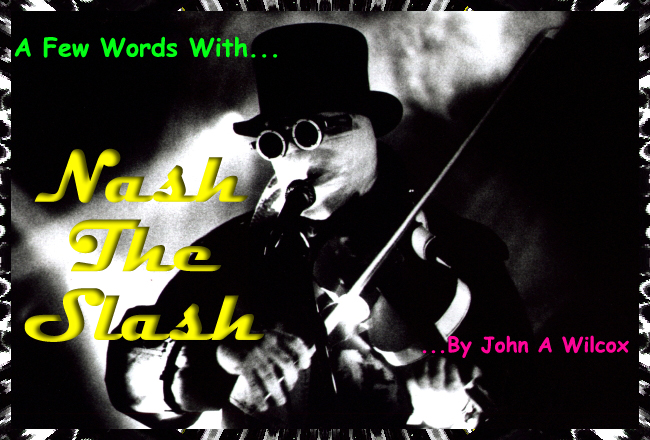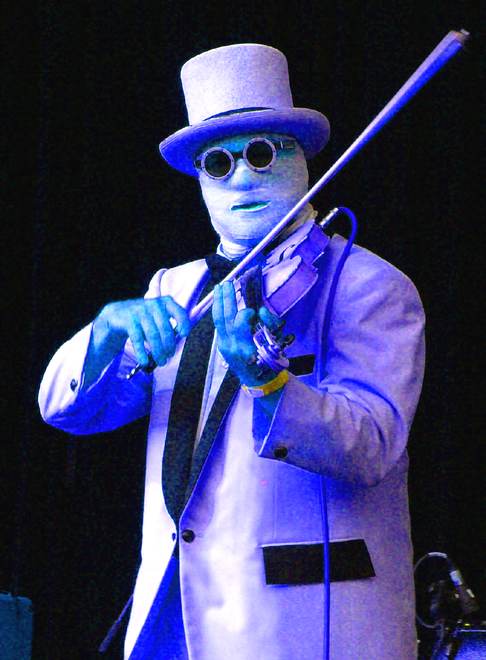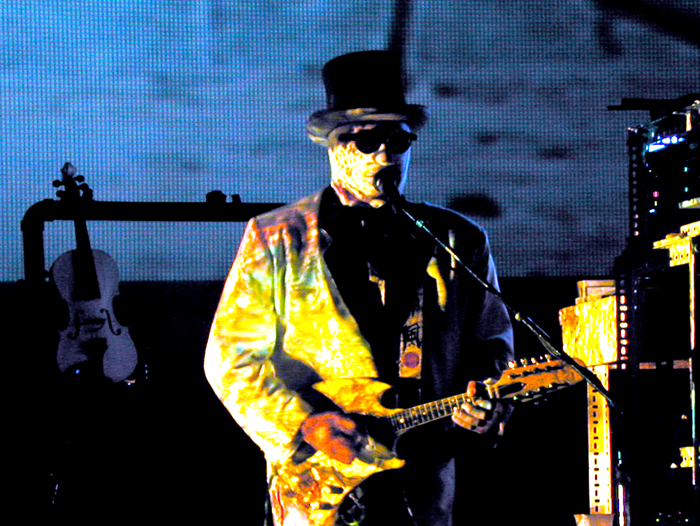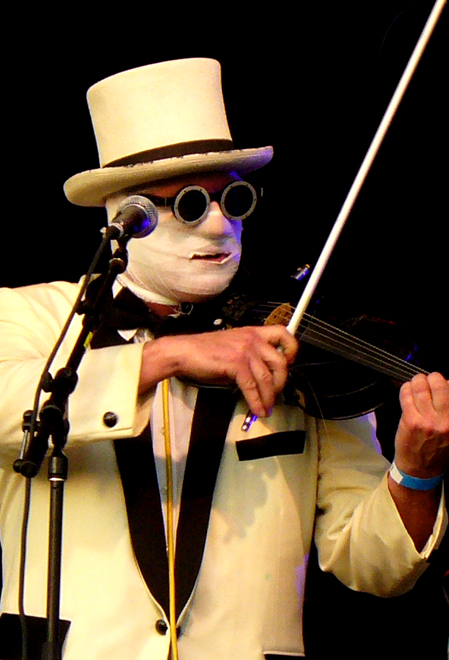

He's that guy that your mom doesn't trust around your sister. He's that guy who makes violins and mandolins sound raw and dangerous. He's that guy with the bandaged face and tuxedo who's been making unsettling, extraordinary music for over 30 years now, with no end in sight! He's Nash The Slash, and here's what he had to say to Progsheet...


